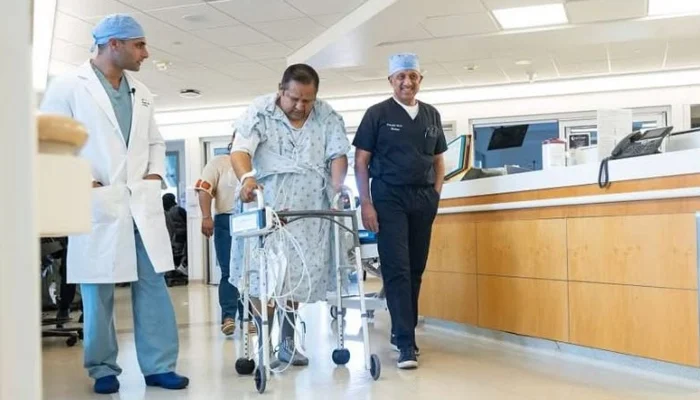Surgeons at a hospital in Los Angeles, California, have successfully performed the world’s first human bladder transplant, hospital officials announced.
The groundbreaking surgery, which took place on May 4 at Ronald Reagan UCLA Medical Center, represents a promising advancement for other patients who suffer from severe bladder disorders.
The recipient of this innovative procedure was Oscar Larrainzar, a 41-year-old father of four. Several years prior, a significant portion of his bladder had been removed due to cancer, as stated by the University of California, Los Angeles, in a Sunday statement.
Larrainzar later had both of his kidneys removed due to cancer and end-stage kidney disease, which led to him being on dialysis for seven years.
He received both a bladder and a kidney from a deceased organ donor, and these organs were successfully transplanted in a complex eight-hour operation.
“The surgeons first transplanted the kidney, followed by the bladder; they then connected the kidney to the new bladder using the technique they had pioneered,” the UCLA statement explained.
Dr. Nima Nassiri, one of the surgeons involved in this historic transplant, reported that the procedure yielded positive results almost instantaneously.
“The kidney immediately produced a large volume of urine, and the patient’s kidney function showed immediate improvement,” Nassiri said.
“There was no need for any dialysis after surgery, and the urine drained properly into the new bladder.”
Nassiri and his colleague, surgeon Inderbir Gill, noted that full bladder transplants had not been performed previously due to the intricate vascular structure of the pelvis, which made it a technically challenging procedure.
“This initial attempt at bladder transplantation has been in the making for over four years,” Nassiri revealed.
Prior to this breakthrough, patients requiring bladder reconstruction typically had two options: an artificial bladder created using a section of their intestines, or the insertion of a stoma bag to collect urine.
Nassiri expressed optimism that the full bladder transplant would circumvent several short-term and long-term risks associated with those traditional techniques.



